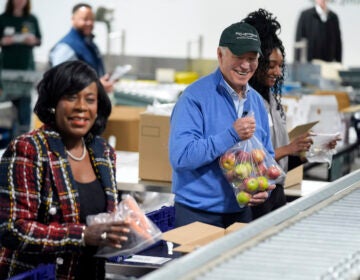Clearing invasive species as part of the 29th annual MLK Day of Service
Hundreds of volunteers throughout the region cleared trash, delivered food and rallied for peace and justice as part of the nation’s largest and oldest MLK Day of Service.
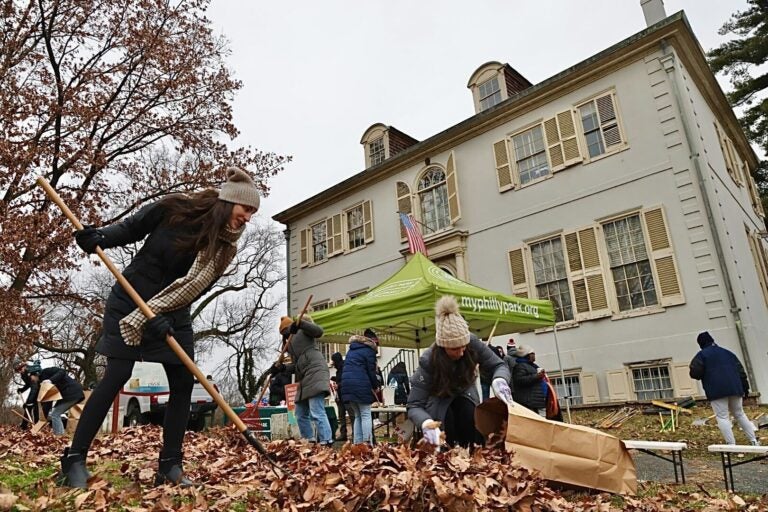
Volunteers rake leaves outside Sweetbriar Mansion in West Fairmount Park. About 50 volunteers raked leaves, picked up trash, and cut back invasive vines at the historic city-owned property as part of Philadelphia’s Martin Luther King Day of Service. (Emma Lee/WHYY)
From Philly and the Pa. suburbs to South Jersey and Delaware, what would you like WHYY News to cover? Let us know!
Hundreds of volunteers throughout the region on Monday cleared trash, packed hygiene kits for gun violence victims, rallied for peace and justice, and distributed food and clothing to those experiencing homelessness. The activities were part of the nation’s oldest and largest volunteer effort in honor of the Reverend Martin Luther King Jr.
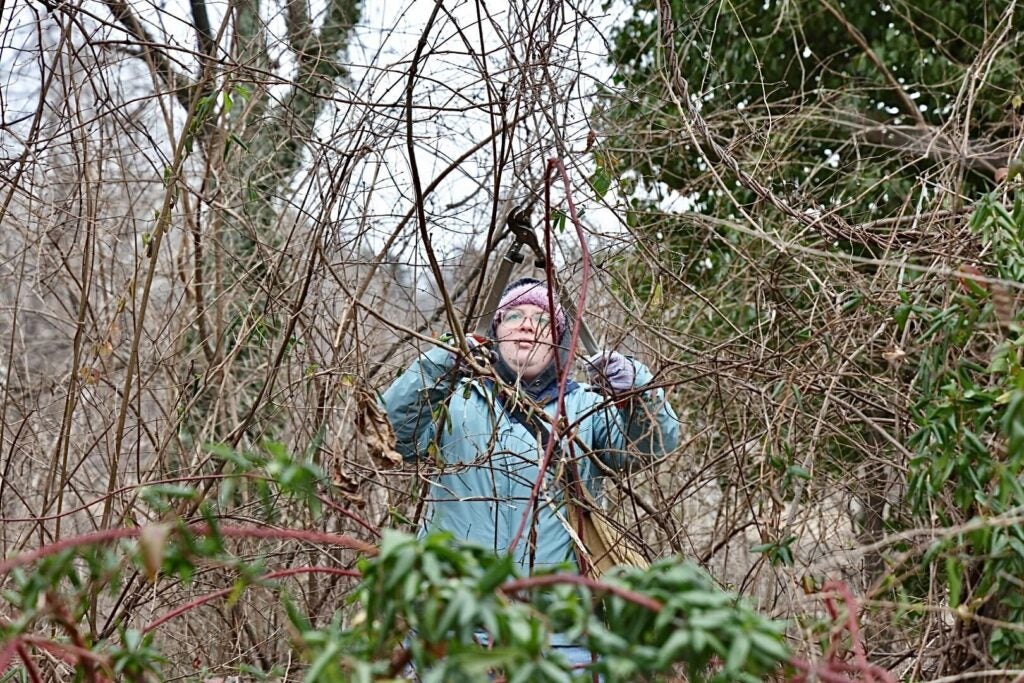
This year marks the 29th annual MLK Day of Service.
“I always try to volunteer, I can’t just get a free day off,” said Kevin Inoa, one of about 60 volunteers armed with clippers and rakes who cut back English Ivy and Oriental bittersweet vines from trees near Sweetbriar Mansion in West Fairmount Park.
“[Martin Luther King Jr.] broke barriers,” Inoa said. “He made a huge impact in the right direction to help people towards freedom. I grew up here. I love doing anything I can for the city.”
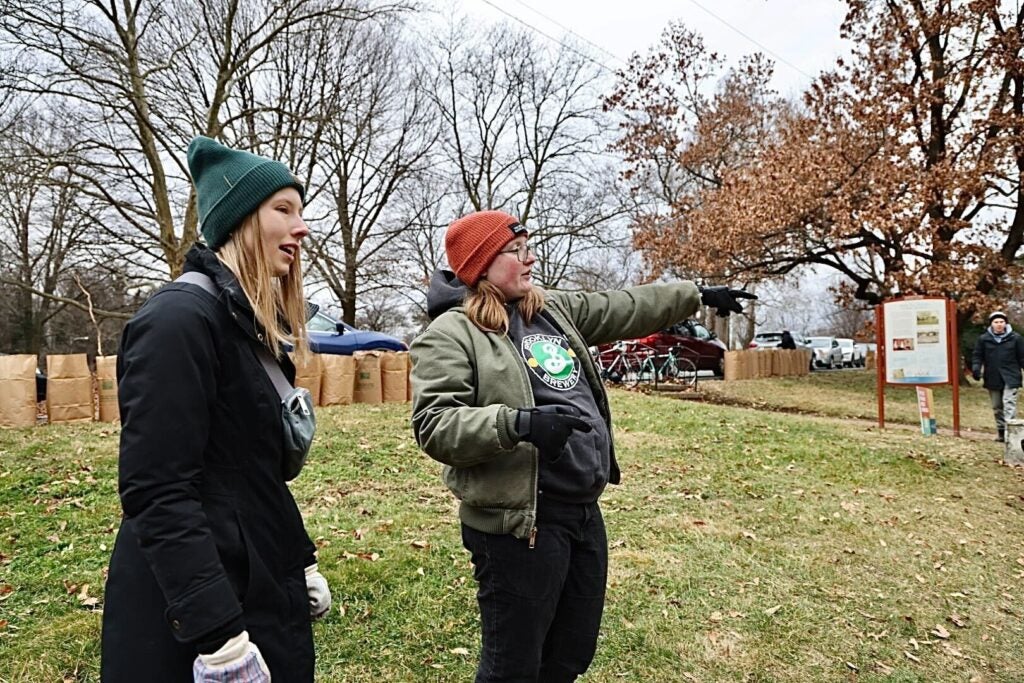
Others, like Morgan Doyle, clear invasive species on a weekly basis in Fairmount Park.
“Climate action is really important to me,” said Doyle, a lead volunteer with Fairmount Park Conservancy, which organized the event. “I feel like climate change is a huge problem, and it stresses me out a lot, so a small thing that I can do in my community is keep removing invasive species and really support the ecosystem within Fairmount Park.”

The park is awash in non-native species that can take over, making it difficult for native pollinators and birds to thrive.
Fairmount Park Conservancy volunteer coordinator Eduardo Duenas pointed to a thick tree with dark, shiny green leaves completely circling its trunk.
“These beautiful leaves, this is English Ivy,” said Duenas. “We are not in England, so we should have a different kind of species…one that will climb the tree, but will not kill the host.”
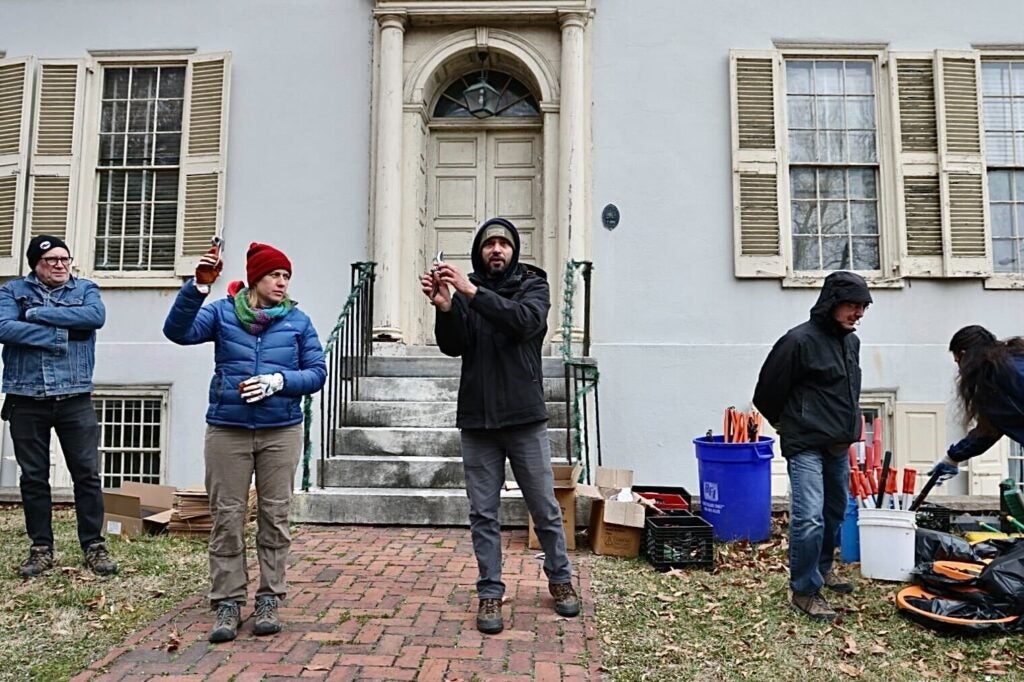
Emerald honeysuckle (which is still sold at nurseries), porcelain berries and wineberries also threaten native plants.
“It spreads everywhere,” said Duenas, referring to the wineberries. “These are the red berries you can see in July and August everywhere.”
Duenas has a novel way to keep wineberry shrubs at bay.
“I actually make wine, jam and vinegar out of them,” he said.
He described the taste as “delicious.”
“If you prepare it and you drink it the first week, it is like a very sweet juice. After the first week, it starts fermenting, and it turns more acidic.”
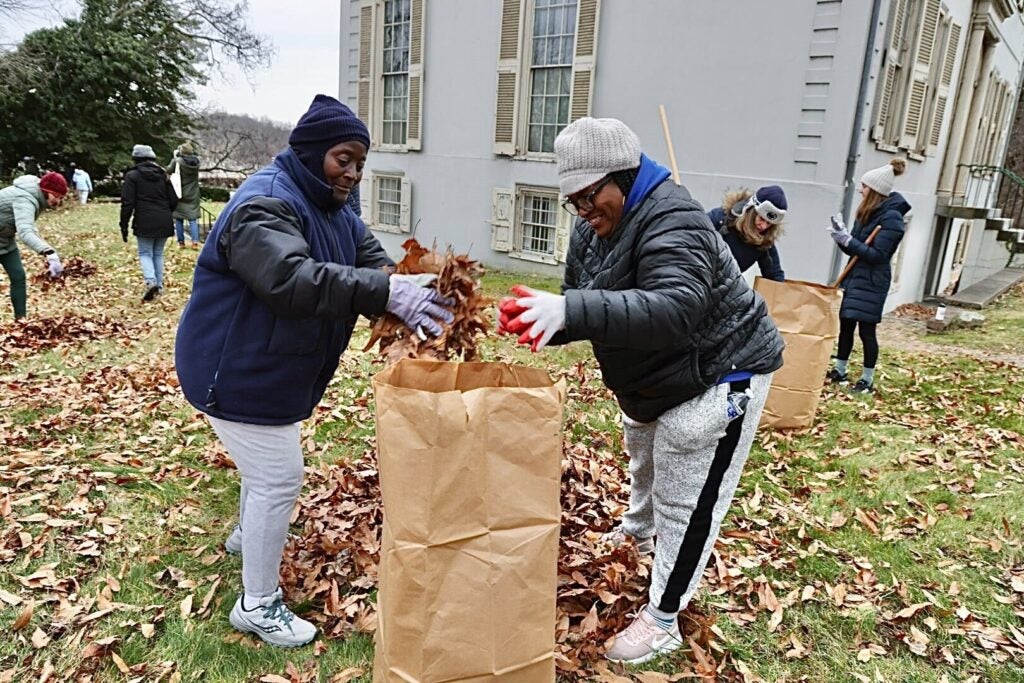
Once the fermentation process takes over, Duenas is on his way toward making wineberry wine.
Duenas says if more people made wineberry wine there would be less of this pesky shrub to cut back.

Get daily updates from WHYY News!
WHYY is your source for fact-based, in-depth journalism and information. As a nonprofit organization, we rely on financial support from readers like you. Please give today.



